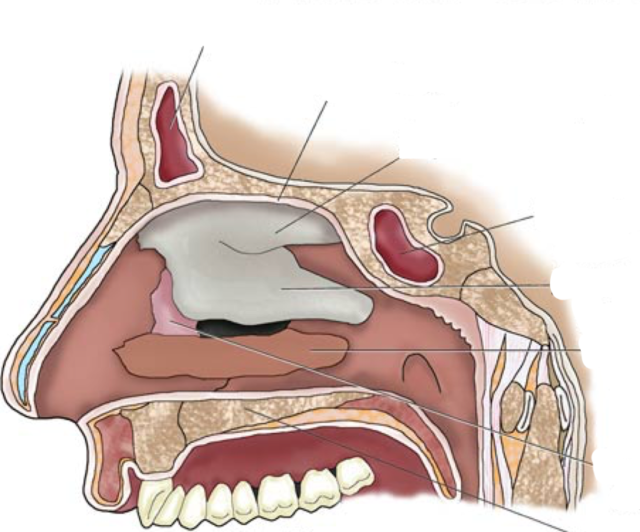
Health is a holistic concept where each part of the body is intricately connected to the other. One such under-explored connection is between our oral health and our sinuses. We might not typically link our dental health to anything beyond a bright smile or healthy gums, but oral health problems can have far-reaching impacts that can affect our sinuses. Understanding this link can help us manage and prevent issues that could otherwise compromise our wellbeing.
The Intricate Connection: Tooth Problems and Sinus Issues

The oral cavity and sinuses are closely related due to their proximity in the facial structure. This proximity means that an issue in one area can readily affect the other. Sinuses are air-filled spaces within the bones of your face, located above and on either side of your nose. The roots of your upper molars, in many cases, extend close to the maxillary sinuses – the largest of the sinuses. Therefore, any infection or inflammation in your teeth can easily spread to your sinuses.
This anatomical closeness explains why people often experience sinus symptoms such as congestion, pressure, and headaches when they have dental problems, especially those affecting the upper molars. Conversely, an inflammation or infection in the sinuses can cause referred pain to the teeth, often misinterpreted as a toothache. Therefore, maintaining excellent dental health is critical to prevent sinus problems and vice versa.
Oral Health and Sinus Health: A Two-way Street
Understanding the impact of dental health on sinus health is crucial in managing the overall health of your mouth and sinuses. Dental conditions such as tooth decay, gum disease, or a tooth abscess can lead to bacterial infection that, if left untreated, can spread to the sinuses causing a condition known as maxillary sinusitis.
Inversely, sinus infections can mimic symptoms of dental problems, such as toothache, making it critical for healthcare professionals to correctly diagnose the root cause of the pain. The pain from sinusitis is often mistaken for dental pain due to the pressure and inflammation in the sinus cavities, emphasizing the importance of professional diagnosis and treatment.
Anatomy of the Sinuses and Teeth

Understanding the connection between dental and sinus health requires a basic overview of their structures and anatomical locations. The sinus cavities are air-filled pockets located within the bones of the skull. The largest ones, called the maxillary sinuses, are positioned on either side of the nose and are in close proximity to the upper teeth, particularly the back molars and premolars.
Similarly, the structure of a tooth is composed of several layers. The outermost layer is the hard enamel, followed by the dentin, which surrounds the pulp – the innermost part housing the blood vessels and nerves. The roots of the upper teeth, particularly the molars, extend into the maxillary sinuses. This close relationship explains why issues affecting the teeth can easily impact the sinuses, and vice versa.
Sinus Infections and Tooth Pain
Sinus infections, or sinusitis, can frequently lead to discomfort in the teeth. This happens because the inflammation and swelling in the sinuses increase the pressure on the roots of the teeth, leading to a condition known as referred pain. This pain is often felt in the upper teeth, making it difficult to pinpoint whether the pain originates from a dental issue or a sinus infection. One of the most common reasons for discomfort is the area where wisdom teeth lie, and it can be dealt with by a simple wisdom teeth extraction.
Symptoms of sinus-related tooth pain can include sensitivity to hot and cold, discomfort when biting down or chewing, and a constant dull ache in the upper teeth. If you’re experiencing these symptoms, particularly accompanied by other sinusitis symptoms like nasal congestion, postnasal drip, headache, or facial pressure, it might indicate that your tooth pain is sinus-related.
Sinusitis and Dental Health

Delving deeper into the issue, it’s important to understand how sinusitis could impact dental health. Sinusitis is an inflammation of the sinus cavities, often caused by infections, allergies, or autoimmune issues. When the sinuses swell, they can put pressure on the roots of the teeth, leading to tooth pain. Prolonged sinusitis can even lead to tooth sensitivity and gum infections due to the increased pressure.
Further, the discharge from the infected sinuses can cause bad breath, contributing to overall oral health issues. That’s why individuals with chronic sinusitis might also suffer from recurrent oral health problems. It underscores the importance of managing sinusitis effectively to avoid further dental complications.
Tooth Abscess and Sinus Issues
While sinusitis can lead to tooth problems, the reverse is also true. A tooth abscess, which is a pocket of pus due to a bacterial infection in the tooth, can cause serious sinus issues. This happens when the infection from an abscessed upper tooth spreads to the maxillary sinus cavity.
Symptoms of a tooth abscess include severe toothache, sensitivity, gum redness, and swelling. If the infection spreads to the sinus, it can lead to sinusitis, characterized by symptoms such as a runny nose, facial pain, and headache. Therefore, a tooth abscess requires immediate medical attention not only to resolve the dental issue but also to prevent further complications like sinusitis.
Sinus Pressure and Toothache

When your sinuses are inflamed, the pressure can manifest as a toothache. The roots of your upper teeth are located close to the sinuses, and sinus pressure can cause discomfort and sensitivity in these teeth. This can often lead to confusion, as the pain can feel like a classic toothache. The key difference is that sinus-related tooth pain is usually felt in several teeth, as opposed to localized in one area.
If you’re experiencing a toothache alongside symptoms like a runny nose, facial pain, or a history of sinusitis, it’s vital to consult with both a dentist and an ENT specialist. This way, you can ensure that you treat the root cause of your discomfort rather than just the symptoms.
Impact of Tooth Loss on Sinus Health
Tooth loss can have a significant impact on sinus health, primarily through the process of bone resorption. When a tooth is lost, the lack of stimulation to the jawbone can cause it to gradually diminish in a process called resorption. This can lead to a loss of bone height in the upper jaw, allowing the sinus cavity to expand and ‘drop’ into the space left by the missing tooth.
This phenomenon can complicate the placement of dental implants, as there might be insufficient bone structure to support the implant. Additionally, the closer proximity of the sinus cavity can increase the risk of sinusitis, as bacteria from the oral cavity have a shorter distance to potentially migrate into the sinus cavity.
Preventive Measures

Maintaining good dental and sinus health is crucial in preventing sinus-related tooth problems. Regular dental check-ups and cleanings can help prevent oral health issues that can potentially lead to sinus problems. Similarly, managing allergies, avoiding smoking, and staying hydrated can help keep your sinuses healthy. Regular sinus evaluations are also important, particularly for individuals prone to sinusitis.
Conclusion
Tooth problems can have a significant impact on your sinuses due to the close anatomical relationship between your teeth and sinus cavities. From sinus infections causing tooth pain to the impact of tooth loss on sinus health, understanding this interconnectedness can help improve overall health. Any concerns regarding dental or sinus health should be professionally evaluated to ensure accurate diagnosis and effective treatment.












